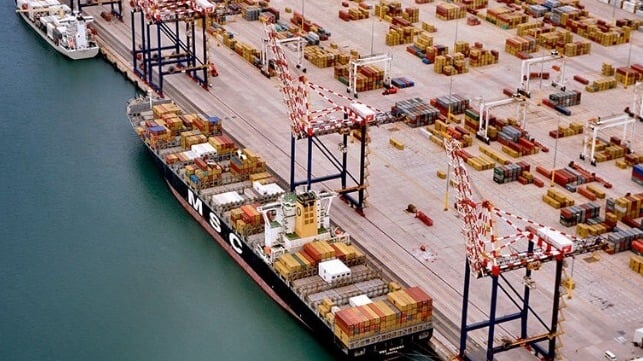South Africa Moves to Ban Strikes for Some Port Workers

South Africa’s government is moving to forestall port strikes, which in the past have left a massive dent to the country’s economy. In a new directive, the Department of Labor is proposing to expand its list of essential services to include port operations. This step would ban strikes for certain categories of employees of Transnet, the national port and rail authority.
The government directive suggests that marine services, including navigation, pilotage, towage and berthing, will be listed as essential services. Cargo services will also fall under this category when the cargo to be offloaded consists of explosives, flammable and pharmaceutical products. Port security, emergency and firefighting personnel have also been added to the essential services list.
The directive, which was published last month, comes a few weeks after Transnet and its majority union UNTU reached a wage agreement. UNTU members had voted to approve a labor action back in May, and the deal averted a major port strike in South Africa. Transnet agreed for an 18 percent salary increase over three years, although UNTU was pushing for a 10 percent rise in a single year agreement. Earlier in March, the smaller union SATAWU had settled for a 17.5 percent increase over three years.
In 2022, an UNTU-led port strike almost left South Africa’s economy at a standstill, with serious disruption to exports of minerals and fresh products. According to the South African Association of Freight Forwarders (SAAFF), the 11-day strike (beginning October 6, 2022), led to over $3 billion in export losses.
The new directive on port services is seen as part of a government reform effort to return Transnet to profitability. In the six months to September 30 last year, Transnet reported a loss of $117 million, citing higher costs and operational challenges. In May, the government agreed to give the state-owned logistics group a $2.8 billion guarantee facility. The funding would go to operations, servicing debt and capital investments over a period of two years.

that matters most
Get the latest maritime news delivered to your inbox daily.
However, Transnet in the last two months has celebrated achieving significant milestones in its port operations. With MSC now deploying ultra-large containerships to Africa, Transnet has successfully berthed this kind of vessels at its two ports. In June, Port of Durban received MSC Rifaya, the largest boxship to ever dock at the port. The vessel is nearly 400 meters long and has capacity for up to 19,499 TEUs.
Last week, Transnet celebrated yet another historical moment with the docking of MSC Nicole Mastro at the Port of Ngqura, in the Eastern Cape. Mastro is larger than Rifaya and has capacity for around 24,000 TEUs.
